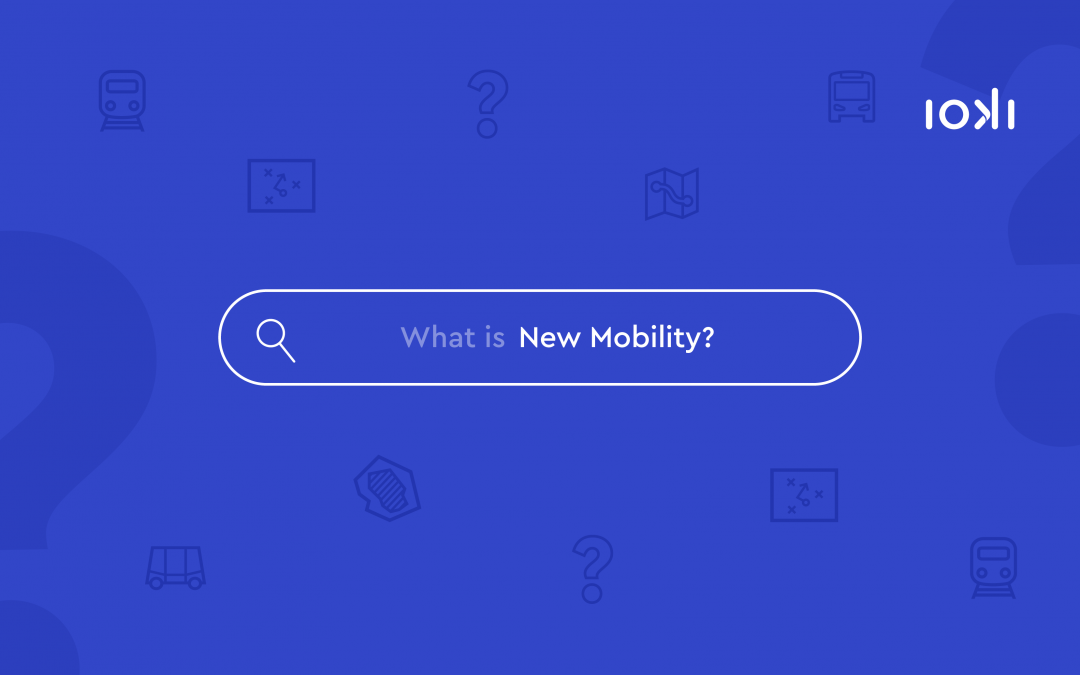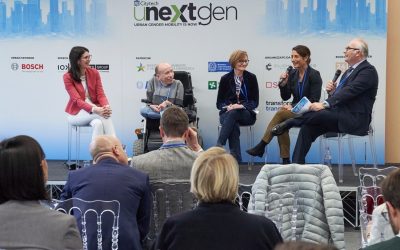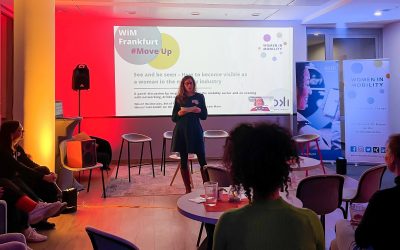Thereby we deliberately chose the contrasts between setting and focus. Because we were already sure in advance that an event on rural mobility can indeed make sense even in the middle of the big city of Frankfurt. Why? Because it is precisely the symbiosis of the urban/rural poles and proven systems/new technologies that can offer exciting potential for needs-based and efficient solutions.
And so, together with industry experts such as Prof. Mathias Wilde from the University of Applied Sciences in Coburg, we looked at what is needed for a new understanding of rural mobility – and, last but not least, dared to take a small excursion into philosophy.
One important finding of the evening – let us anticipate this much – is the(re)-discovery of the human being in the context of the mobility cosmos. Because many of the existing, but also new mobility solutions are captivating above all by one thing: factual objectivity. They are efficient in the economic and ecological sense, they are modern and innovative – but are they really what the local population needs in terms of a genuine needs-based approach? Are they constructed for what lies at the heart of mobility in rural areas, namely the ability to participate in society?
Prof. Wilde, following Aristotle, suggests a possible approach to clarify this crux of the matter, namely how knowledge of the problems of rural mobility can be used to derive concrete action to improve the situation.
This includes, for example, the activation of a critical mass, the reduction of possible resistance, the consideration of the diversity inherent in this mass, and finally and above all the conviction of an alternative course of action. In our very concrete case and with regard to the question of the evening, this could be, for example, the enthusiasm and conviction of the rural population for alternatives to the private car.
And – as we all know – what is more convincing than real success and best practice examples? This is precisely why we then and after a short speech on the topic of «Digital call-collecting taxi operations», we devoted a discussion round to the topic of «Mobility in rural areas» in a very practical way.
Together with Marcel Höhn, Managing Director of TA-Consult, a subsidiary of the Limburg-based TA group, and Mark Braun, Senior Associate in the Infrastructure Advisory & Mobility division at PwC, we asked ourselves: What is the real situation in rural areas? What challenges are there in terms of mobility? How can we build on existing offers, optimise and digitalise them efficiently and in line with demand? What are examples of well-solved mobility in rural areas? And finally: Who is involved in the implementation of all these solutions and who should be brought together?
Mark Braun is certain: «The public transport system should be designed in such an attractive way that it can grow into a real alternative to the car». This demand also or especially applies to rural areas, where mobility means social participation.
Marcel Höhn, who sees himself as part of the rural population and is well acquainted with call-collecting taxi as a taxi entrepreneur, also focuses on the sustainability factor. His aim is not to put new vehicles on the road, but rather to use existing resources as purposefully and sensibly as possible – as small vessels that take customers to the next largest means of transport flexibly and according to their needs.
In broad terms, then, at yesterday’s Business Club we identified two important characteristics of sustainable mobility, which, incidentally, apply not only to rural areas, but especially there, of course:
(1) Mobility is first and foremost there for people and, as such, must be developed and improved time and again, reflecting the actual needs on the ground. This can be achieved if the population of rural regions is actively involved in shaping the mobility concepts intended for them.
(2) In rural areas in particular, where second and third cars are still no exception due to a lack of alternatives, a turnaround in transport must be achieved. This requires realistic solutions that meet the special challenges of rural areas and (again?) make public transport the heart of mobility.
We would like to thank all speakers and participants of yesterday’s ioki Mobility Network Business Club for their thoughts and ideas they shared with us and the impulses they gave.



